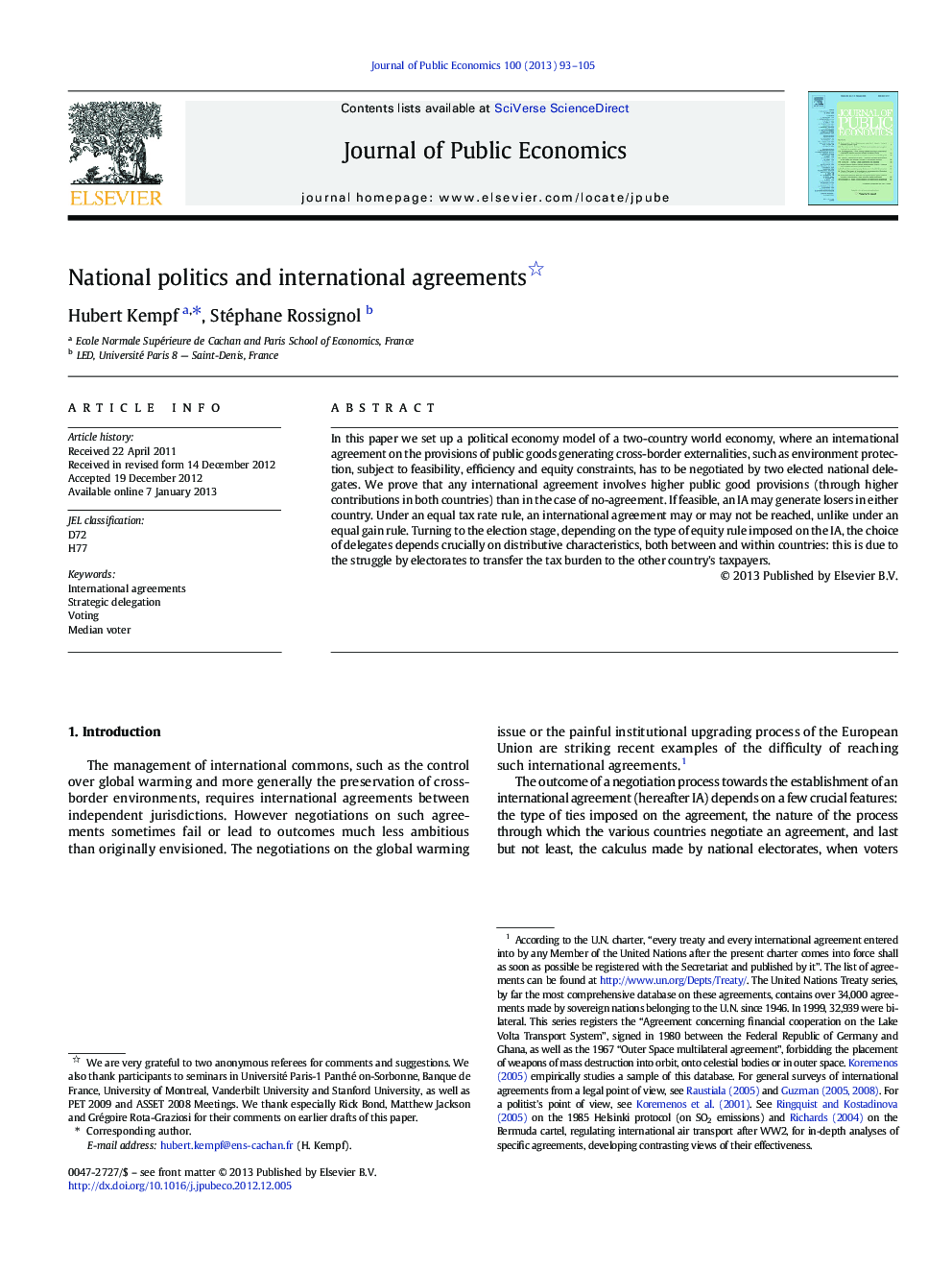| کد مقاله | کد نشریه | سال انتشار | مقاله انگلیسی | نسخه تمام متن |
|---|---|---|---|---|
| 969738 | 1479457 | 2013 | 13 صفحه PDF | دانلود رایگان |

In this paper we set up a political economy model of a two-country world economy, where an international agreement on the provisions of public goods generating cross-border externalities, such as environment protection, subject to feasibility, efficiency and equity constraints, has to be negotiated by two elected national delegates. We prove that any international agreement involves higher public good provisions (through higher contributions in both countries) than in the case of no-agreement. If feasible, an IA may generate losers in either country. Under an equal tax rate rule, an international agreement may or may not be reached, unlike under an equal gain rule. Turning to the election stage, depending on the type of equity rule imposed on the IA, the choice of delegates depends crucially on distributive characteristics, both between and within countries: this is due to the struggle by electorates to transfer the tax burden to the other country's taxpayers.
► International agreements are negotiated between elected national delegates.
► Any international agreement generates distributive effects.
► An agreement may not be reached, depending on equity rules and income distribution.
► The elections of delegates depend on intra- and international income inequalities.
Journal: Journal of Public Economics - Volume 100, April 2013, Pages 93–105